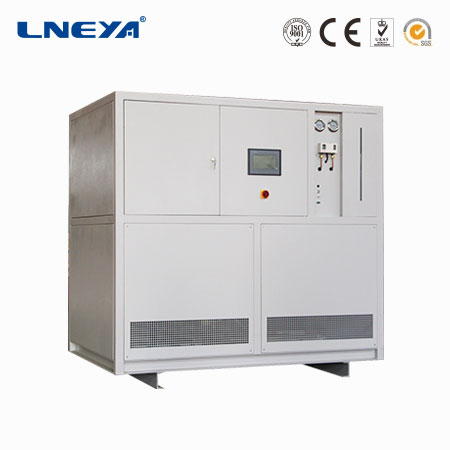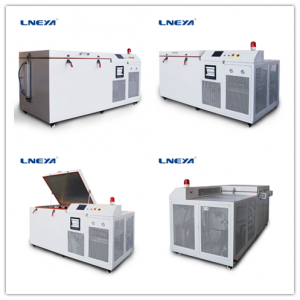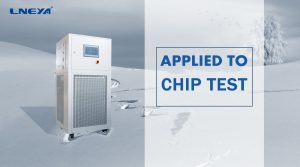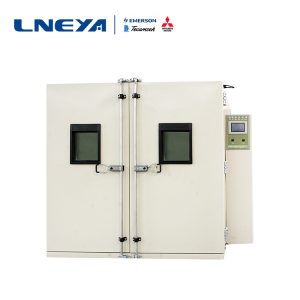Why can ethylene glycol chillers be used for polymerization and coupling reactions
1. Polymerization heating
Generally, the raw materials of
polymerization reaction are some flammable solvents, and heating up quickly may
cause local temperature to be too high and cause accidents. Every
polymerization reaction has its proper reaction temperature. If the temperature
is changed outside, the reaction efficiency will be reduced, and the
polymerization reaction will release more reaction heat. Changing the proper
temperature will be immeasurable, especially in industrial production. accident.
Therefore, Wuxi Guanya’s refrigeration and heating integrated machine can be
selected to adjust the temperature of the polymerization reaction to ensure the
safety in the process of production.
Among the polymerization reactors, more
than 80% of the polymerization reactors are tank reactors. There are two types
of reactors without stirring and those with stirring. Among them, the reactor
with stirring is used more. Because the heat exchange device has endothermic
and exothermic reactions, it is necessary to set up a heat exchange device to
provide and take away heat. The main structure is With jacket heat transfer,
inner cooling part heat transfer and external circulation heat transfer, Wuxi
Guanya’s refrigeration and heating equipment can just meet the regulation of
exothermic and endothermic heat.
The kettle type polymerization reactor can
be used for the production of a variety of polymers; it can be used in
low-viscosity polymer systems as well as high-viscosity polymer systems; it can
be used in both batch operation and continuous operation. The basic structure
of the polymerization reactor mainly includes a kettle body, a stirring device,
a stirring accessory, a heat transfer device, and a sealing device. According
to the reaction materials and operating requirements, the kettle type
polymerization reactor has a variety of types, such as thin and long type and
short and fat type, which are mainly determined by the ratio of length to
diameter.
2. The characteristics of the coupling
reaction
The coupling reaction rate is slow, and the
solubility of the reaction product often changes greatly. After precipitation,
the viscosity of the material is greatly increased, which seriously affects the
mixing of the material, and is easy to form a material package and cause the
reaction to be incomplete. The application of the microchannel reactor to the
coupling reaction enhances the mixing of materials and is beneficial to
increase the reaction rate. It is equipped with high and low temperature
integrated equipment. When the reaction temperature is in the range of 5-25℃, as the
temperature rises, the reaction rate increases, and the residence time required
for the complete reaction becomes shorter, but at the same time, the low flow
rate is The reaction will accelerate.
The dynamic temperature control of LNEYA
glycol chiller is mainly used in dynamic constant temperature control of high
pressure reactor cold and heat source, dynamic constant temperature control of
double-layer glass reactor cold and heat source, dynamic constant temperature
control of double-layer reactor cold and heat source, constant temperature of
microchannel reactor Control; small thermostat control system, steaming system
temperature control, material low temperature high temperature aging test,
combined chemical cold source heat source constant temperature control,
semiconductor equipment cooling heating, vacuum chamber cooling heating
constant temperature control.
Related recommendations
-
Instructions to Use Industrial Cryogenic Refrigerator
1743Industrial refrigerators are one of the cold water machines. It is classified according to the cooling mode of the cold water machine itself. It is divided into air cooling type refrigerators and water cooled refrigerators. Structural features: a ...
View details -
How to use a multimeter to test the components of the chip test temperature control machine?
1554The chip test temperature controller is used for IC, CPU, GPU, DPU, BGA, FCBGA, LGA, QFN, QFP, CSP, WLCSP, Bare Die, and other Device Under Test. So, how to use a multimeter for these commonly used components What about testing? For electronic com...
View details -
Semiconductor diffusion furnace configuration temperature control equipment
1596In the semiconductor industry, a diffusion furnace is a device used to manufacture doping layers on the surface of semiconductor materials. It achieves the doping process through high-temperature heating and controlled diffusion atmosphere...
View details -
Step-by-step test box brand advantage description
1764The walk-in test box is developed and produced by LNEYA. It is specialized in pharmaceutical production technology and provides customers with various models of brands. Next, we will introduce the next step-in test box. Welcome to refer to and lea...
View details
 LNEYA Industrial Chillers Manufacturer Supplier
LNEYA Industrial Chillers Manufacturer Supplier













